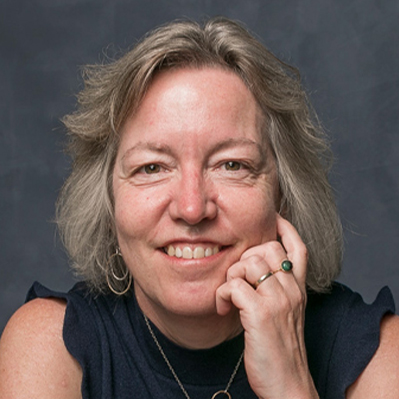
Professor
Charles H. Dyson School of Applied Economics and Management
Cornell University
Catherine L. Kling is a Tisch University Professor in the Charles H. Dyson School of Applied Economics and Management at Cornell University. She serves as Faculty Director and Cornell Atkinson Scholar in the Cornell Atkinson Center for Sustainability, and leads the Social Cost of Water Pollution working group. Kling chairs the Water Science and Technology Board of the National Academy of Sciences, Medicine and Engineering, has been a member of six National Research Council studies, and served for ten years on EPA’s Science Advisory board. Catherine is a Fellow of the Association of Environmental and Resources Economists, a Fellow of the Agricultural & Applied Economics Association, a University Fellow at Resources for the Future, and was elected to the National Academy of Sciences in 2015.
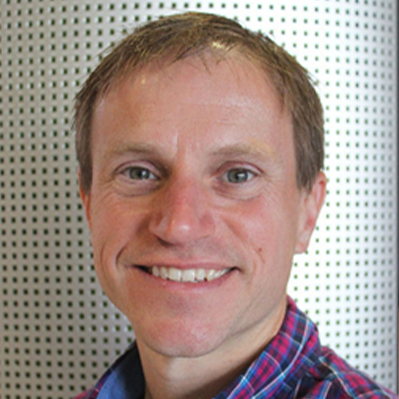
Professor
Department of Civil and Environmental Engineering
University of Wisconsin
Steven P. Loheide is a Professor in the Department of Civil and Environmental Engineering at the University of Wisconsin - Madison where he is the Director of the Hydroecology Lab. His research is focused on interactions between ecological and hydrological processes in natural and built systems, and the competition for water among municipal and industrial users, agriculture, and natural ecosystems. He and his research group develop methods to quantify and understand the processes controlling the exchange of water between groundwater, vadose water, vegetation, streams, and the atmosphere using a combination of field data, remote sensing, and numerical modeling.
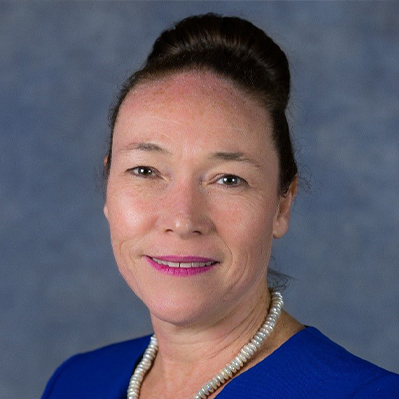
Director
Brevard County Natural Resources Management Department
Virginia H. Barker, Director of Brevard County Natural Resources Management Department, holds undergraduate degrees in Science and Math from Duke University and a Master’s in Coastal Environmental Management. With 27 years of service to Brevard County, she has managed beach resources, the stormwater utility program, and mosquito control, among other environmental initiatives. Virginia led the development of the Save Our Indian River Lagoon Project Plan, guiding pollution elimination efforts funded by a voter-approved sales tax. She spearheaded the establishment of a Citizen Oversight Committee for the project. Virginia’s commitment to environmental stewardship has been recognized through various awards and accomplishments.

Chief Resilience Officer
State of Florida
A native of Miami, Wes serves as Florida’s Chief Resilience Officer, leading the Statewide Office of Resilience on behalf of Governor Ron DeSantis to enhance agency coordination on resilience, and bolster flood protection and mitigation efforts across inland and coastal communities throughout the state.
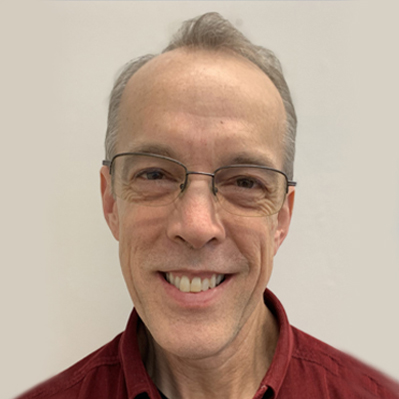
President
FWEA Utility Council and Supervising Engineer
Gainesville Regional Utilities (GRU)
Rick Hutton is a professional engineer in the Office of Sustainability at Gainesville Regional Utilities. He received his bachelor’s and master’s degrees in environmental engineering from the University of Florida and has been engaged in water supply planning, water and wastewater treatment, and water quality protection for over 32 years. He is past president of the Florida Water Environment Association Utility Council.

Executive Director
St. Johns River Water Management District
Michael A. Register was appointed Executive Director by the District’s Governing Board in 2021. He has been with the St. Johns River Water Management District since 1990. During his tenure, Michael has worked in various areas, including environmental resource permitting, consumptive use permitting, water supply planning, engineering, and environmental sciences. As director of the Division of Water Supply Planning and Assessment, he oversaw work groups responsible for surface water and groundwater modeling, developing minimum flow and levels (MFLs) and prevention/recovery strategies, and conducting water supply planning efforts. Michael holds Bachelor of Science and Master of Engineering degrees in agricultural engineering from the University of Florida. He is a registered professional engineer in Florida.
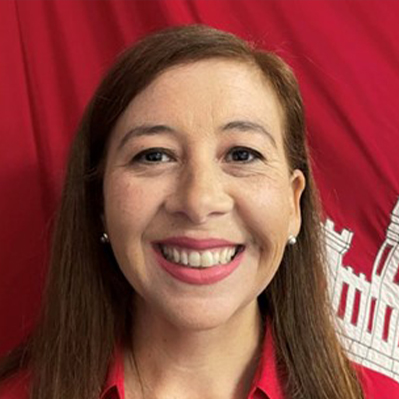
Chief
Ecosystem Branch
U.S. Army Corps of Engineers
Jacksonville District
Eva B. Vélez, a licensed professional engineer in Florida, serves as the Chief of the Ecosystems Branch in the Programs and Project Management Division of the US Army Corps of Engineers (USACE) Jacksonville District. With over 23 years of experience, Eva oversees aquatic ecosystem restoration efforts in the South Florida Ecosystem and leads resiliency initiatives in Central and Southern Florida. Previously, she managed Everglades restoration programs and founded her own engineering firm, specializing in water resources. Eva’s contributions have earned her accolades like the Young Engineer of the Year award from the Florida Section of the American Society of Agricultural and Biological Engineers (ASABE). She is a licensed professional engineer in the State of Florida and holds a Bachelor of Science in Agricultural and Biological Engineering from the University of Florida. Eva is bilingual in English and Spanish, residing in Port Saint Lucie, Florida, with her family.
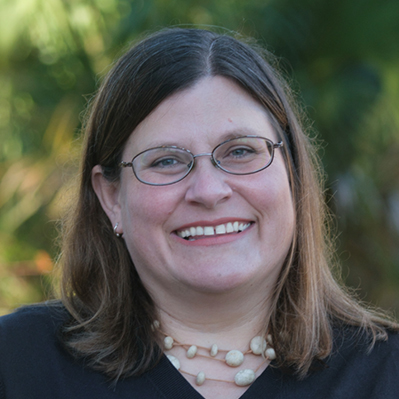
Executive Director
Audubon Florida
Julie Wraithmell serves as the Executive Director of Audubon Florida, the state’s leading voice in conservation. Julie joined Audubon in 2005 and has successfully led statewide conservation and wildlife policy initiatives, built Audubon Florida’s robust coastal conservation program, coordinated Audubon’s response to the Deepwater Horizon disaster, and helped secure millions in funding for protecting Florida’s land and water resources. In 2018, 2019, and again in 2020, Julie was selected as one of Miami Herald’s Top 50 Florida Influencers.
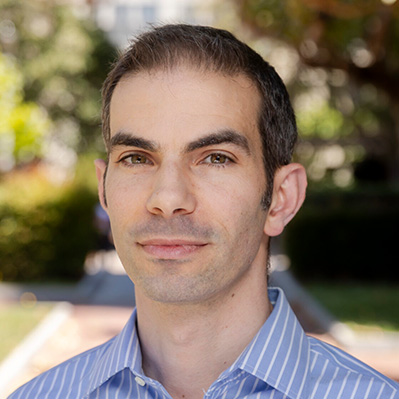
Associate Professor
Agricultural & Resource Economics Department, UC Berkeley
Joseph S. Shapiro is Associate Professor at the University of California, Berkeley, in Agricultural & Resource Economics and the Department of Economics. He also serves as Research Associate at the National Bureau of Economic Research, Research Associate at the Energy Institute at Haas, and has served as Associate Editor of the Journal of Political Economy and Co-Editor of the Journal of Public Economics,. His research studies two general questions: (1) How do globalization and the environment interact, including through trade, foreign investment, and international environmental and energy policy? (2) What have been the effectiveness, efficiency, and equity of environmental and energy policies over the last half century? He studies climate change, air pollution, clean energy, renewable and exhaustible natural resources, and especially water pollution. His work has links to the economics of international trade, public finance, and health. Shapiro is inventor of a machine learning technology which is under license to help firms comply with Clean Water Act regulation. He has received an Alfred P. Sloan Research Fellowship, Kiel Institute Excellence in Global Affairs Award, and Marshall Scholarship. Shapiro holds a Ph.D. in economics from MIT, Masters degrees from Oxford and LSE, and a BA from Stanford.

Associate Professor
Department of Earth and Environment
Florida International University
Elizabeth Anderson is Associate Professor in the Department of Earth and Environment at Florida International University (FIU) in Miami, USA, and head of the Tropical Rivers Lab. Prior to her current appointment, Elizabeth had a productive international career that included positions with the Organization for Tropical Studies in Costa Rica; with the Field Museum of Natural History in Chicago, USA; and with several USAID-supported programs in East Africa, India, and South America. She is a 3-time recipient of a Fulbright award—to Costa Rica, Peru, and Colombia. Through these experiences, she has worked with numerous universities, government institutions, and civil society organizations to facilitate collaborative, applied research in freshwater science around the world. Elizabeth received both B.A. and Ph.D degrees from the University of Georgia, USA.
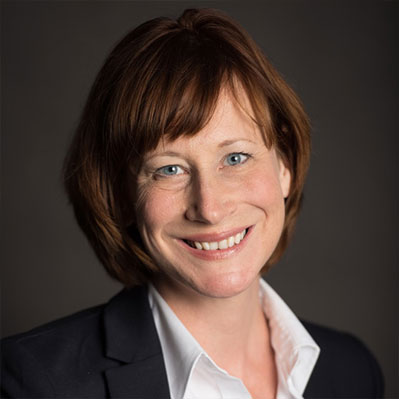
Director
Center for Public Interest Communications, University of Florida
Ann Searight Christiano is the founder and director of the Center for Public Interest Communications and a clinical professor in the Department of Public Relations at the University of Florida College of Journalism and Communications. Public Interest Communications applies science-based strategic communication and storytelling to advance positive social change.
She developed the first university curriculum in this emerging field, connecting practitioners and scholars while cultivating research that supports its growth. Before joining UF in 2010, Christiano served as a senior communications officer at the Robert Wood Johnson Foundation, where she led initiatives addressing the social factors that shape health and well-being.
Christiano completed a decade as the inaugural Frank Karel Chair in Public Interest Communications in 2020 and has earned honors including UF Teacher of the Year and International Educator of the Year. Her writing appears in outlets like Barron’s, Stanford Social Innovation Review, and The Conversation. Through the Center, she has partnered with organizations such as the United Nations High Commissioner for Refugees, the Gates Foundation, and the U.S. Department of State, and she regularly trains scientists and leaders to communicate their work’s impact more effectively.
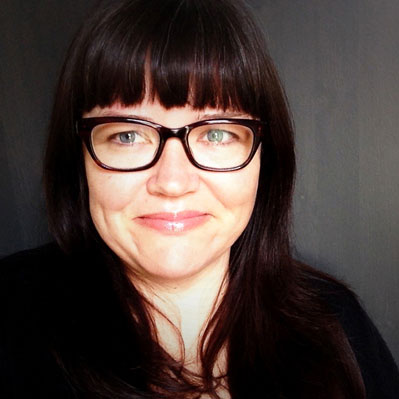
Director of Research Communications
Arizona Water Innovation Initiative
Faith Kearns is a scientist and research communication practitioner. She writes and talks primarily about water, wildfire, and climate change. Her work has been published at New Republic, On Being, Bay Nature, and more. Kearns' award-winning book Getting to the Heart of Science Communication: A Guide to Engagement (Island Press) is widely available. She co-hosts the award-winning Water Talk podcast with Mallika Nocco and Samuel Sandoval.
In previous roles, Kearns has developed science communication projects at the Ecological Society of America, served as a AAAS Science and Policy Fellow at the U.S. Department of State, managed a wildfire research and outreach center at the University of California - Berkeley, bridged science and policy advocacy efforts at the Pew Charitable Trusts, and led science communication efforts with the California Institute for Water Resources in the University of California's Division of Ag and Natural Resources/Cooperative Extension.
Kearns currently serves as the Director of Research Communication with the Arizona Water Innovation Initiative in the Julie Ann Wrigley Global Futures Laboratory at ASU.
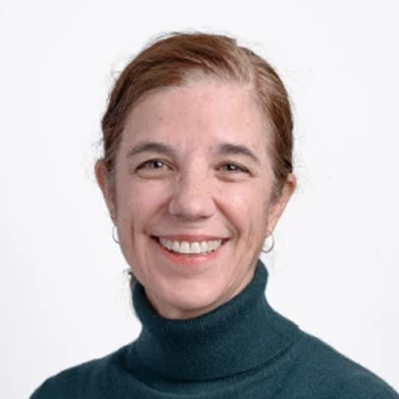
Environmental Reporter
WLRN
Jenny Staletovich has been a journalist working in Florida for nearly 20 years. She’s reported on some of the region’s major environment stories, including the 2018 devastating red tide and blue-green algae blooms, impacts from climate change and Everglades restoration, the nation’s largest water restoration project. She’s also written about disappearing rare forests, invasive pythons, diseased coral and a host of other critical issues around the state. She covered the environment, climate change and hurricanes for the Miami Herald for five years and previously freelanced for the paper. She worked at the Palm Beach Post from 1989 to 2000, covering crime, government and general assignment stories. She has won several state and national awards including the Scripps Howard National Journalism Award for Distinguished Service to the First Amendment, the Green Eyeshades and the Sunshine State Awards. Staletovich graduated from Smith College and lives in Miami, with her husband and their three children.
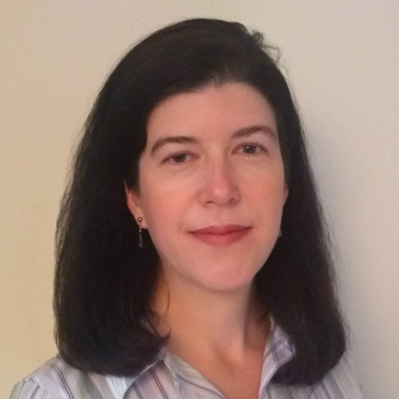
Water Data Scientist
U.S. Geological Survey
Dr. Alison Appling is a water data scientist with the U.S. Geological Survey. She uses a combination of statistical, theoretical, and knowledge-informed machine learning methods to model water quality in rivers and lakes. She is especially passionate about investigating patterns and drivers of water quality through the development of new, improved, and integrated modeling methods, for which she received a Presidential Early Career Award for Scientists and Engineers in 2025. She also manages water prediction projects, encompassing diverse modeling methods and spanning the water cycle, in support of national and regional water availability assessments. She earned a PhD in Ecology from Duke University and currently lives in State College, Pennsylvania.
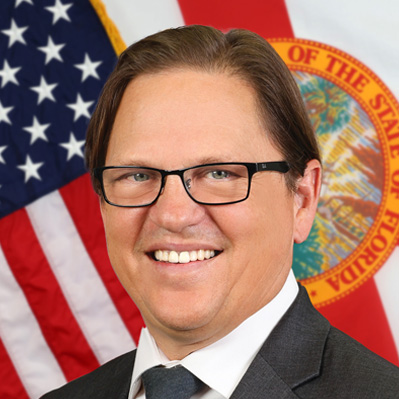
Professor of Geology, University of South Florida
Chief Science Officer, State of Florida
Dr. Mark Rains is a Professor of Geology at the University of South Florida and Chief Science Officer for the State of Florida. His research is focused on how water flows from ridges-to-reefs and controls the structure and function of the ecosystems with which it interacts along the way, and how this knowledge can inform water-related law, policy, and decision-making. As the Chief Science Officer, he is charged with ensuring that science underlies sound environmental policy and protection, especially as related to water-quality protection and flood resilience. He is the recipient of numerous distinctions, including receiving three Scientific and Technological Achievement Awards from the U.S. Environmental Protection Agency and being elected a Fellow in the Society of Wetland Scientists.
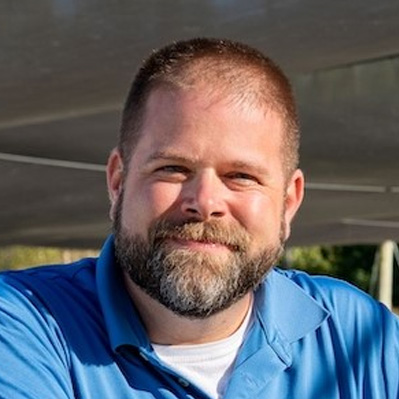
Associate Director
UF/IFAS Center for Aquatic and Invasive Plants (CAIP)
Dr. Joe Bisesi is the Associate Director of the UF/IFAS Center for Aquatic and Invasive Plants (CAIP) and an associate professor in the School of Forest, Fisheries, and Geomatic Sciences at the University of Florida. He is an aquatic toxicologist whose work focuses on examining both the beneficial and detrimental impacts of chemicals in environmental systems in support of advancing environmentally sound strategies for managing aquatic and natural area invasive plant species, supporting research and outreach that protect Florida’s ecosystems. In this leadership role, he helps guide CAIP’s mission to integrate science-based solutions into management practices that balance ecological health and human needs. Bisesi brings more than a decade of experience in research, teaching, and administration at UF. He previously served as Associate Chair of the Department of Environmental and Global Health, where he was also an Associate Professor and Ph.D. Program Director. His interdisciplinary expertise spans environmental toxicology and chemistry, water science, and human health. He also maintains affiliations with UF’s Center for Environmental and Human Toxicology, Water Institute, and Emerging Pathogens Institute. Bisesi earned his Ph.D. in Environmental Toxicology from Clemson University and is committed to leveraging science to inform policy and decision-making for sustainable water resource management.
